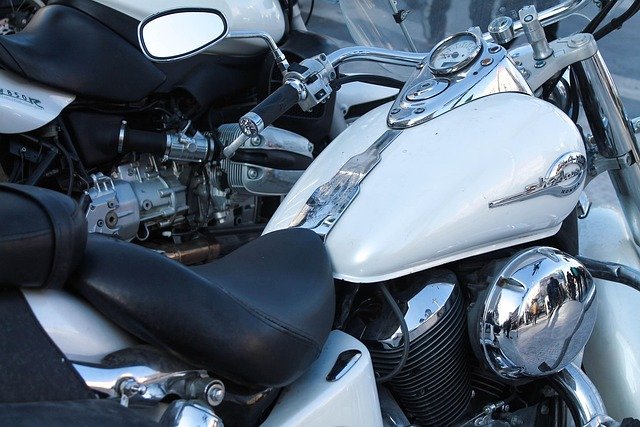Learn About Police Impound Motorcycles In 2025 - Discover Ways To Get One In The US
Police impound motorcycles represent a potentially valuable opportunity for buyers seeking affordable two-wheeled transportation. When law enforcement agencies seize or impound vehicles, including motorcycles, they eventually need to clear their storage facilities, creating opportunities for public purchases. Understanding how these auctions work, where to find them, and what to expect in 2025 can help prospective buyers navigate this unique marketplace effectively. This guide explores everything you need to know about police impound motorcycles in the coming year.

What Are Police Impound Motorcycles?
Police impound motorcycles are vehicles that have been confiscated by law enforcement agencies for various reasons. These motorcycles typically enter impound lots due to traffic violations, abandonment, involvement in crimes, repossession for unpaid loans, or seizure during arrests. After a legally mandated holding period during which owners may reclaim their property (typically 30-90 days depending on state laws), unclaimed motorcycles become eligible for public auction. These motorcycles can range from common commuter bikes to high-end performance models, with conditions varying from nearly new to requiring significant repairs. The key distinction of impound motorcycles is their acquisition method - they come directly from government agencies rather than traditional dealerships or private sellers.
How Do Police Impound Motorcycle Auctions Work in the US?
Police impound motorcycle auctions follow specific procedures designed to efficiently transfer ownership while generating revenue for government agencies. Most auctions require pre-registration, where potential bidders must provide identification and sometimes pay a registration fee. Auction formats vary by jurisdiction - some utilize traditional in-person bidding with an auctioneer, while others have transitioned to online platforms, a trend accelerated by recent technological adoption.
Before bidding begins, auction houses typically offer inspection periods where potential buyers can examine motorcycles, though these examinations are usually visual only - test rides are rarely permitted. During the auction, motorcycles are presented with minimal information, often just the make, model, year, and VIN. Winning bidders must typically make immediate payment via cash, certified check, or approved electronic payments, and most auctions use an “as-is” policy with no warranties or guarantees about the motorcycle’s condition. Titles are transferred at the time of sale or shortly after, with buyers responsible for registration and any applicable taxes.
Where Can You Find Police Impound Motorcycle Auctions in 2025?
Finding police impound motorcycle auctions in 2025 will involve both traditional and digital channels. Government websites remain the most reliable source of information, with many law enforcement agencies and municipalities publishing auction schedules on their official sites. The expected increase in digital platforms specialized in government auctions, like GovDeals.com, PublicSurplus.com, and GSAAuctions.gov, will make online participation more accessible than ever.
Third-party auction services that contract with government agencies will continue to be prominent resources, including major companies like Manheim and Adesa that handle government surplus. For local options, checking county sheriff’s department websites, municipal police websites, and county administrator pages should provide schedules and registration details. Additionally, subscribing to auction notification services can help interested buyers stay informed about upcoming events without constant manual searching. The trend toward online auctions is expected to accelerate in 2025, making geographic restrictions less relevant for potential buyers.
What Are the Potential Benefits of Buying Police Impound Motorcycles?
Purchasing police impound motorcycles offers several compelling advantages for budget-conscious riders. The most obvious benefit is the potential for significant cost savings, with impounded motorcycles frequently selling for 30-70% below market value. This price differential makes otherwise unaffordable models accessible to more buyers. The diversity of available inventory also presents opportunities to find rare or unique motorcycles that might not be readily available through conventional channels.
For buyers with mechanical skills, impound auctions can be particularly advantageous, as motorcycles needing minor repairs often sell at steep discounts. The straightforward purchasing process, free from dealer negotiations and pressure tactics, appeals to many buyers. Additionally, the provenance of these motorcycles is generally clearer than private party sales, with legitimate titles directly from government agencies. For environmentally-conscious consumers, purchasing existing motorcycles represents a form of recycling that prevents manufacturing waste associated with new production.
What Are the Expected Costs for Police Impound Motorcycles in 2025?
The cost of police impound motorcycles in 2025 will vary significantly based on multiple factors, including the motorcycle’s make, model, age, condition, and the specific auction location. Based on current trends and projected inflation, here’s what buyers might expect:
| Motorcycle Category | Expected Price Range 2025 | Average Discount vs. Retail | Additional Costs |
|---|---|---|---|
| Basic Commuter (125-250cc) | $400-$1,500 | 50-70% | $100-$300 registration/taxes |
| Mid-Size (250-600cc) | $800-$3,000 | 40-60% | $150-$400 registration/taxes |
| Cruiser/Touring | $1,500-$7,000 | 35-55% | $200-$600 registration/taxes |
| Sport Bikes | $1,000-$6,000 | 30-60% | $300-$700 registration/taxes |
| Premium/Luxury Brands | $3,000-$12,000 | 25-45% | $400-$900 registration/taxes |
Prices, rates, or cost estimates mentioned in this article are based on the latest available information but may change over time. Independent research is advised before making financial decisions.
Beyond the purchase price, buyers should budget for additional expenses. Auction houses typically charge buyer’s premiums ranging from 5-15% of the winning bid. Transportation costs for moving the motorcycle from the auction site should be factored in, along with potential storage fees if immediate pickup isn’t possible. Most importantly, repair and maintenance costs can significantly impact the total investment, with impound motorcycles often requiring $200-$1,500 in immediate mechanical attention to reach safe operating condition.
Conclusion
Police impound motorcycle auctions represent a unique opportunity for riders to acquire motorcycles at substantial discounts. As we approach 2025, these auctions continue to evolve with more online accessibility while maintaining their core appeal of value and variety. Success in this marketplace requires research, preparation, and a realistic understanding of both the potential benefits and risks. By familiarizing yourself with auction procedures, inspection techniques, and expected costs, you can make informed decisions that might lead to finding your ideal motorcycle at a fraction of retail price.




